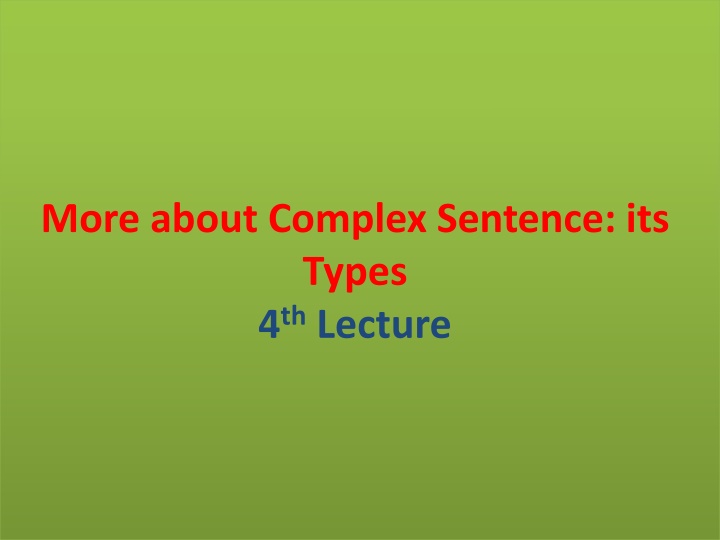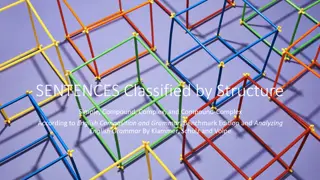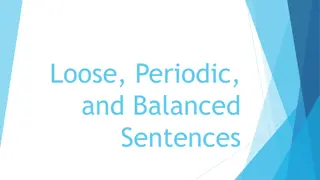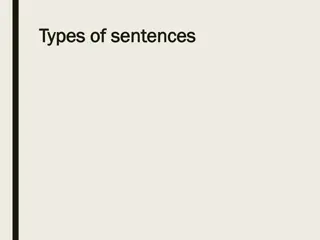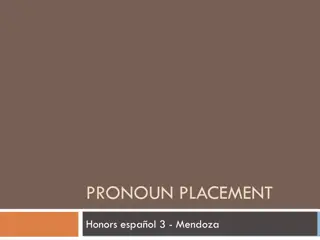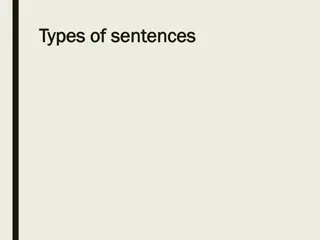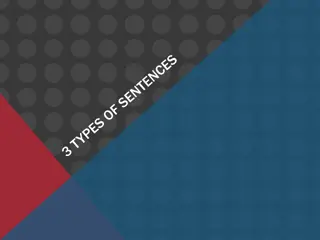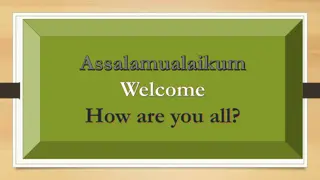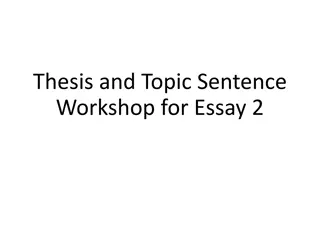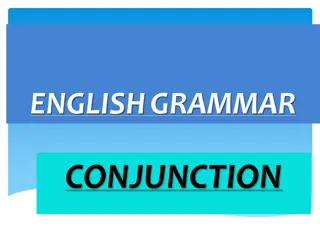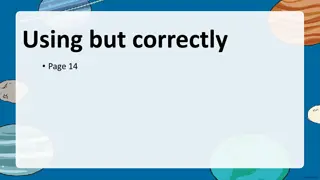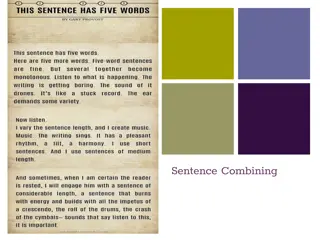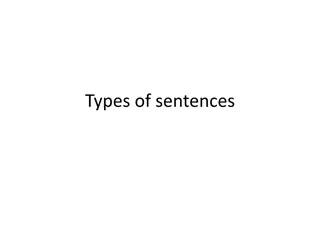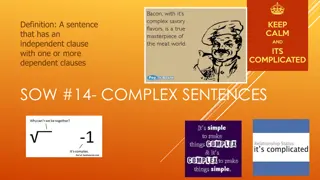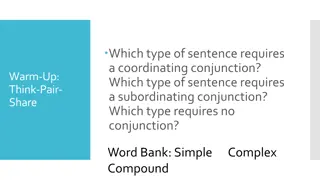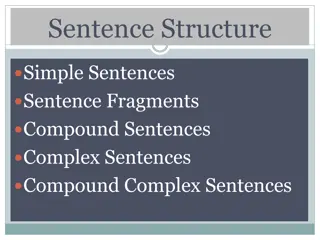Complex Sentences: Types and Examples
In this lecture, we delve into the intricacies of complex sentences, focusing on the types and structures involved. You will learn about adjective clauses and how they modify nouns, along with detailed examples showcasing their usage. The content covers combining simple sentences to form complex sentences with adjective clauses, providing a comprehensive understanding of this advanced linguistic concept.
Download Presentation

Please find below an Image/Link to download the presentation.
The content on the website is provided AS IS for your information and personal use only. It may not be sold, licensed, or shared on other websites without obtaining consent from the author.If you encounter any issues during the download, it is possible that the publisher has removed the file from their server.
You are allowed to download the files provided on this website for personal or commercial use, subject to the condition that they are used lawfully. All files are the property of their respective owners.
The content on the website is provided AS IS for your information and personal use only. It may not be sold, licensed, or shared on other websites without obtaining consent from the author.
E N D
Presentation Transcript
More about Complex Sentence: its Types 4thLecture
The Complex Sentence: (1) Adjective Clauses An adjective clause modifies a noun. Adjective clauses begin with a relative pronoun such as, who, whom, whose, which, that, or a relative adverb such as, why, when or where. e.g. The man who lived next to this house is my teacher. (people subject ) The woman who/whom I met is my aunt. (people object ) He sent a message whose meaning we had agreed upon in advance. (people/things possessive ) Can you tell me the cause why you are late?
The Complex Sentence: (2) Adjective Clauses That is a tribe which interests me. (things subject ) The noise which we hear comes from our neighbor. (things object ) The Apache is a tribe that I will research. (people object ) The smoke that you see is from the hills. (things object ) That is the valley where the tribe lived. (place adverb) The 10thof July is the day when we get our results. (time adverb )
Combine each of the following pairs of simple sentences into one complex sentence containing an adjective clause. 1. The theft was committed last night. The police has caught the man. 2. The French language is different from the Latin language. Latin was once spoken throughout Europe. 3. You are looking upset. Can you tell me the reason? 4. He had several plans for making money quickly. All of them have failed. 5. The landlord was proud of his strength. He despised the weakness of his tenants. 6. This is the village. I was born here. 7. You put the keys somewhere. Show me the place. 8. Paul was an old gentleman. He was my travelling companion. 9. A fox once met a crane. The fox had never seen a crane before. 10. The shop keeper keeps his money in a wooden case. This is the wooden case.
Answers 1. The police has caught the man who committed the theft last night. 2. The French language is different from the Latin language which was once spoken throughout Europe. 3. Can you tell me the reason why you are looking upset? 4. All the plans which he had for making money quickly have failed. 5. The landlord who was proud of his strength despised the weakness of his tenants. 6. This is the village where I was born. 7. Show me the place where you put the keys. 8. Paul who was an old gentleman was my travelling companion. 9. A fox which had never seen a crane before once met a crane. 10. This is the wooden case where the shopkeeper keeps his money.
